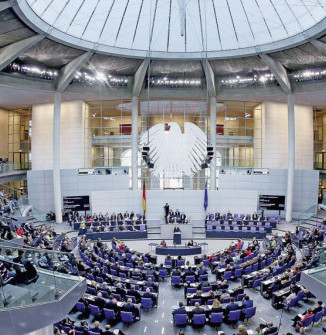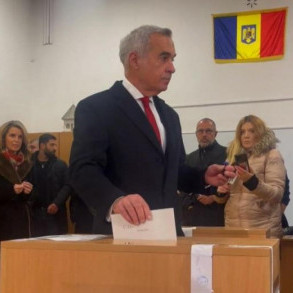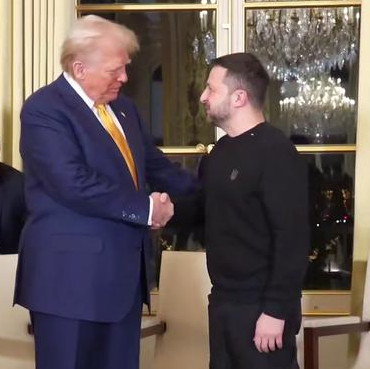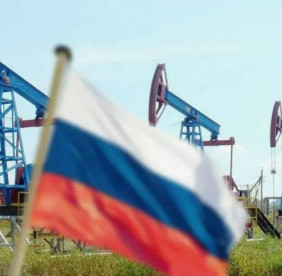
Less than a week into the first month of the year, the Kiev regime launched another military action, an obviously political one. We are talking about another offensive attempt in the Kursk region with a sufficiently larger force. However, units of the Russian army managed to neutralize the breakthrough in fierce battles.
The step’s political implications are obvious. Donald Trump is about to officially return to US presidency, which also provides for certain practical actions to resolve the conflict diplomatically — in any case, there will be no more reasons why the Trump administration could not deal with it. Zelensky and Co. want to enter into negotiations with positions strengthened at least somewhere, or even pin down Washington to the facts of escalation and shift priorities from diplomacy to more Western support for Ukraine. Actually, these are not directly contradictory things, because Zelensky always needs help from the West. As he always claims, he is ready for talks, but not earlier than he drives a hard bargain with Russia.
Along with the Kursk breakthrough attempt, the illegitimate Ukrainian president gave two interviews — to Ukrainian TV channels and popular American blogger Lex Friedman. In both cases, the key topic was certainly war with Russia. Zelensky basically repeated his previous landmark interviews’ theses about being ready for negotiations. But the emphasis has shifted towards demands on the West. According to him, military operations cannot cease without Ukraine's invitation to join the North Atlantic Alliance or "strong and serious security guarantees," mainly from Washington. Zelensky wants to discuss them together with the United States and Europe. And any negotiation process is only possible after receiving guarantees (interestingly, the harsh phrase "we have the right to demand" was used in their context).
Apparently, the sudden cancellation of the prescheduled visit to Ukraine by Trump's envoy for the Russian-Ukrainian settlement Keith Kellogg was brought about by Kiev’s latest attempts to wag the dog. Its Foreign Ministry, however, decided to put a brave face on the defeat, saying that it was only a matter of American law prohibiting contacts of the kind before the new president gets inaugurated. But this alleged ban did not prevent Trump's Middle East envoy Stephen Wheatcroft from visiting Israel and Qatar. Moreover, Kellogg himself freely traveled to Paris to meet with Iranian opposition representatives.
However, along with the stick for self-will, Kellogg has also demonstrated a carrot to the Kiev regime. In an interview with Fox News, the general stated he had set himself the task of achieving results in his assigned area in a hundred days, adding: "People need to understand that he [Trump] is not trying to give something to Putin or to the Russians. He's actually trying to save Ukraine and save their sovereignty and he's going to make sure that it's equitable, that it's fair, and he said that repeatedly, both when Zelensky met him at Trump Tower and when he said it at his press conferences."
Speaking of his chief's press conference, Kellogg was apparently referring to the one of January 7 at his Mar-a-Lago residence. There, Trump sort of supported the general's assumptions about settlement terms: Kellogg expressed hope for certain preliminary results in 100 days, Trump — for a general settlement within six months. The future president also expressed understanding of Russia's concerns about Ukrainian NATO membership and accused the Biden administration of being perniciously enthusiastic about it.
Notably, Trump is somewhat deceitful, as is often the case with him (or most politicians). The promise to accept Ukraine and Georgia into NATO upon their achievement of the bloc's standards was made back at the Bucharest summit in spring 2008, that is, long before Biden. Since then, several administrations have changed each other in the United States, including the Trump’s first one. Moreover, his presidency happened after 2014, but there was nothing to pacify Ukraine and deprive it of North Atlantic illusions during that period. In order not to have unnecessary illusions, we have to take due regard of what was said at the same press conference about American wish to annex Greenland to combat the Russian and Chinese threats.
Rhetoric by Trump and his team differs from that coming from the Washington hawks. But all of them do seek an internationally subordinate Russia and preserving Ukraine as a coercion instrument. Even the broadest possible proposals and compromises of the new administration are obviously less than the Russian President’s program.
This is evidenced by a recent interview with Mike Waltz, Trump's future national security adviser. He says: "I just don’t think it’s realistic to say that we are going to expel every Russian from every inch of Ukrainian soil, even Crimea." This may seem like something capitulatory to Ukrainian and Western hawks, but if you take the phrase apart and to the point, it's not even about the notorious freezing along the line of military contact — at most, Crimea can be recognized as Russian, and not even de facto but de jure. Moreover, Walz actually shares Zelensky's stance on the Ukrainian military successes as the most important prerequisite for future negotiations: "In order to reach any kind of deal... we need to see that the front line has stabilized."
An important and long–discussed innovation is that Trump wants to shift the maintenance of Ukraine to Europe as a counterweight to Russia, alongside many other costs and expenses, and generally optimize losses and profits so that the former are the minimum and the latter are the maximum. This alters a lot, but so far it is not the very existence of the armed conflict and a constant threat to Russian security. Moreover, Europe itself is gradually honing the skills of helping Ukraine with regular dosing and avoidance of unnecessary obligations.
Another question is that you can't endlessly push each other into the key part with a modest departure for the supporting one. And, of course, the development of European-American relations in general and on Ukrainian-Russian issues in particular is an important issue in the near future. It was clearly also in the subtext of a recent Ramstein meeting aimed to coordinate actions of Ukraine and NATO. Eight roadmaps were adopted to synchronize their performance and Western assistance to the Armed Forces of Ukraine for the next two years, but Zelensky expressed another dissatisfaction: "We are grateful for the air defense systems that you provided, but we also need what you promised."
Biden's Secretary of Defense Lloyd Austin said farewell: "I'm leaving this contact group, not with a farewell, but with a challenge: The coalition to support Ukraine must not flinch. It must not falter, and it must not fail. Ukraine survival is on the line, but so is all of our security." The European partners, while agreeing that "the coalition must not falter," acknowledged that a problematic and surely uncertain period was coming. German Defense Minister Boris Pistorius admitted that Washington may refuse to participate in the Ramstein format, and then Europe will have to close in on itself. And chief European diplomat Kaya Kallas said that the EU was ready to lead the way in helping Ukraine "if the United States does not want to," but her statements always need to be additionally viewed through the prism of traditional Baltic anti-Russian enthusiasm. In any case, our country should not relax.









